Part 1: How To Come Up With Startup Ideas
Part 1: How To Come Up With Startup Ideas
Hey guys, I’m making video series on how I built ContactOut to 8 figures in revenue. Step by step videos on how to start a startup with screen shares of our teams exact process for competitor research, customer interviews, product design, marketing and sales. Actionable and tactical stuff – no fluff.
Here’s part 1:
How to come up with startup ideas
Pick an industry (with a big market size)
Study 100 companies
Study their product
Study marketing channels
Study sales process
Talk to ex-employees, ex-founders
Talk to 50 industry experts
Talk to 100 users
Become an expert and create a 10x better solution
Picking an industry:
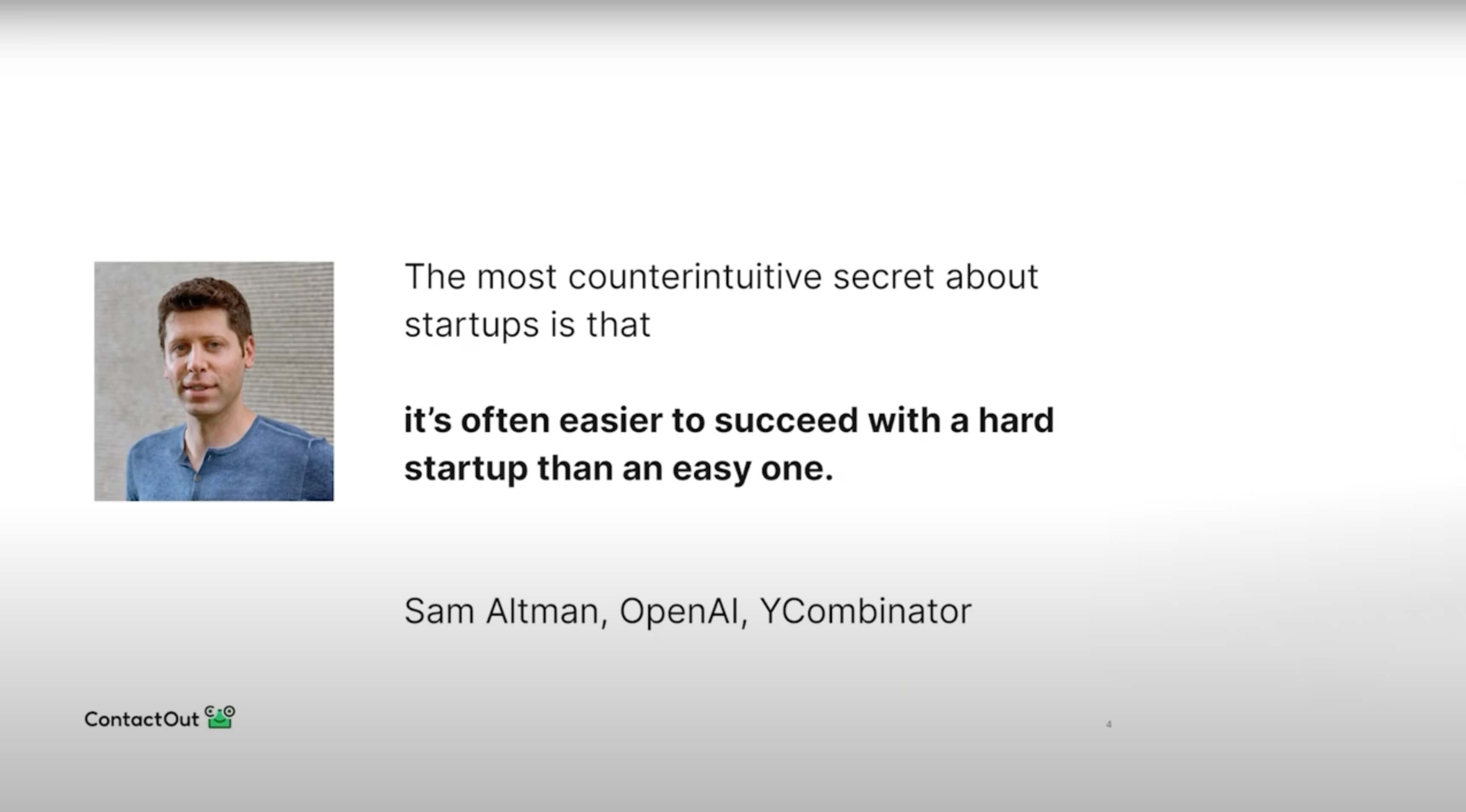
Picking an industry with a big market size is important because, counterintuitively, it's actually easier to succeed working on a big problem than it is working on a small one. According to Sam Altman of OpenAI and Y Combinator, this is because it's easier to inspire people to join you, easier to raise money, and you also have more room for error.
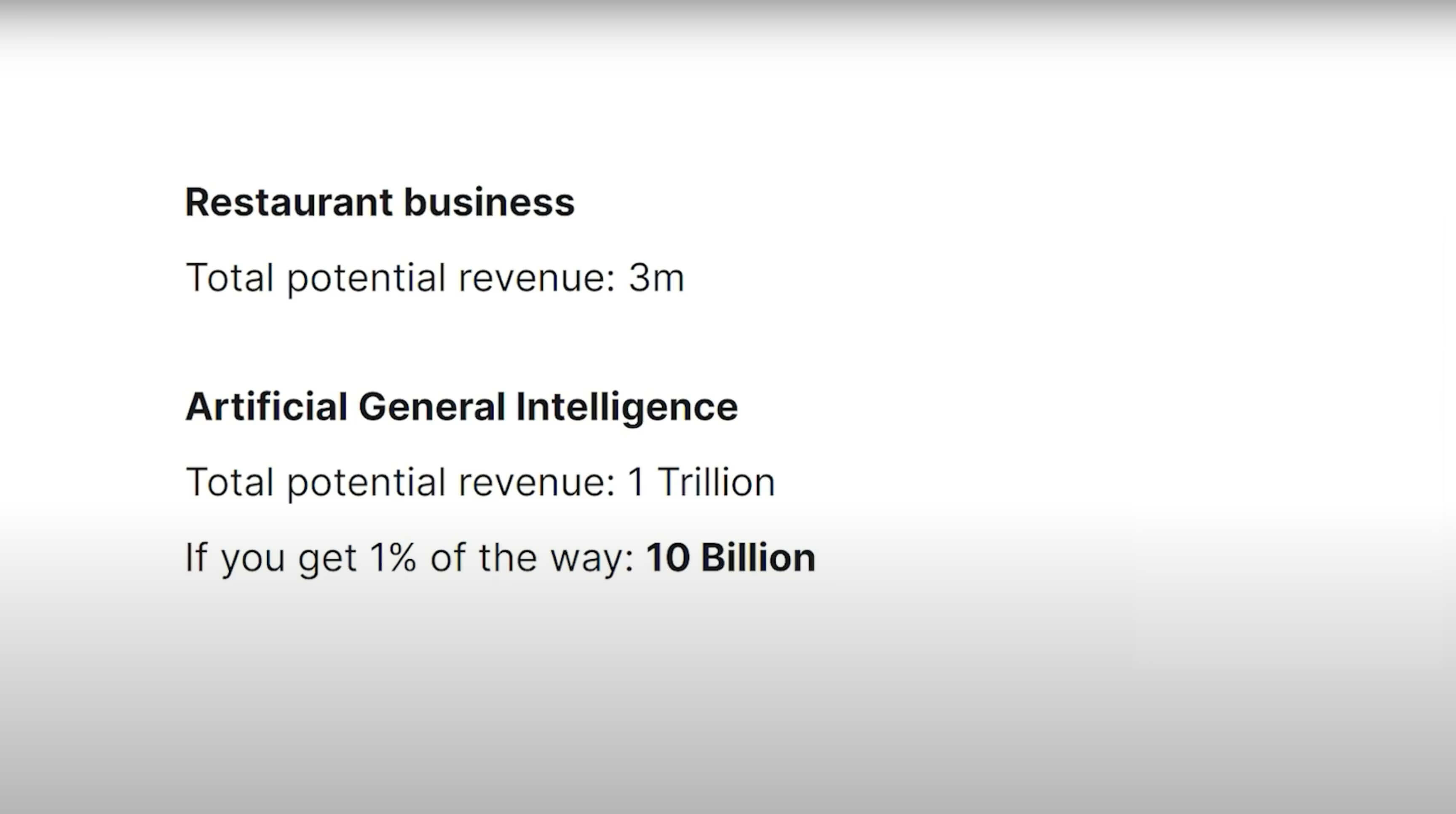
If you're trying to solve artificial general intelligence, even if you get 1% of the way there, you'll still make $10 billion because it's a trillion-dollar problem. Whereas, if you tried to start a restaurant, even if you execute perfectly, your maximum upside is maybe $3 million. But you won't execute perfectly because startups are hard.

I like to read A16Z, where they talk about AI, biology, and health, the latest developments in consumer technology, enterprise software, games, and lots of other stuff. It’s basically their job to find the latest technological developments and invest in them, so you can piggyback off that.
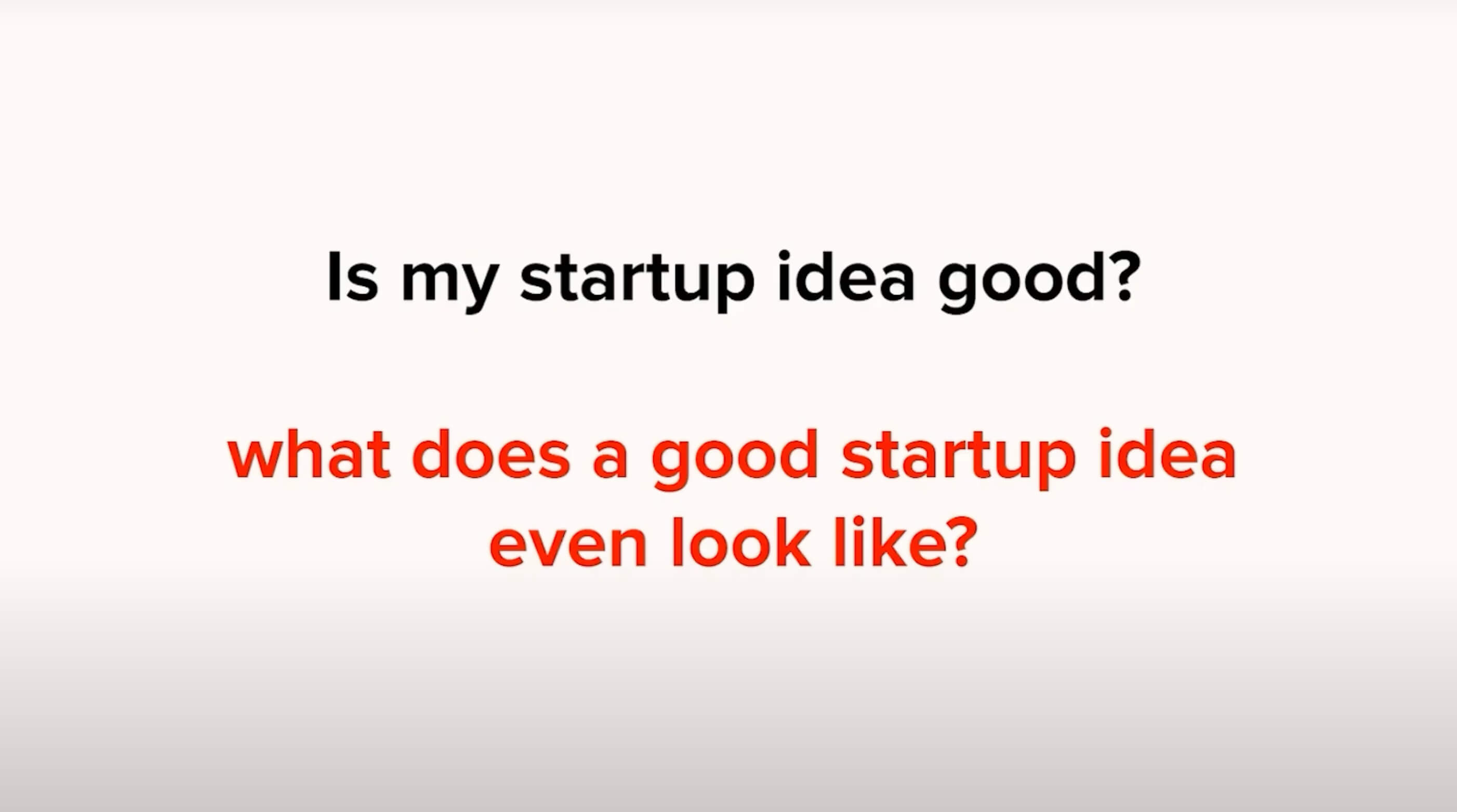
Most founders might go through a couple of startup ideas and then get straight into building. The problem with this is, though, how do you even know if the startup idea you're working on is any good? What does a good startup idea even look like?
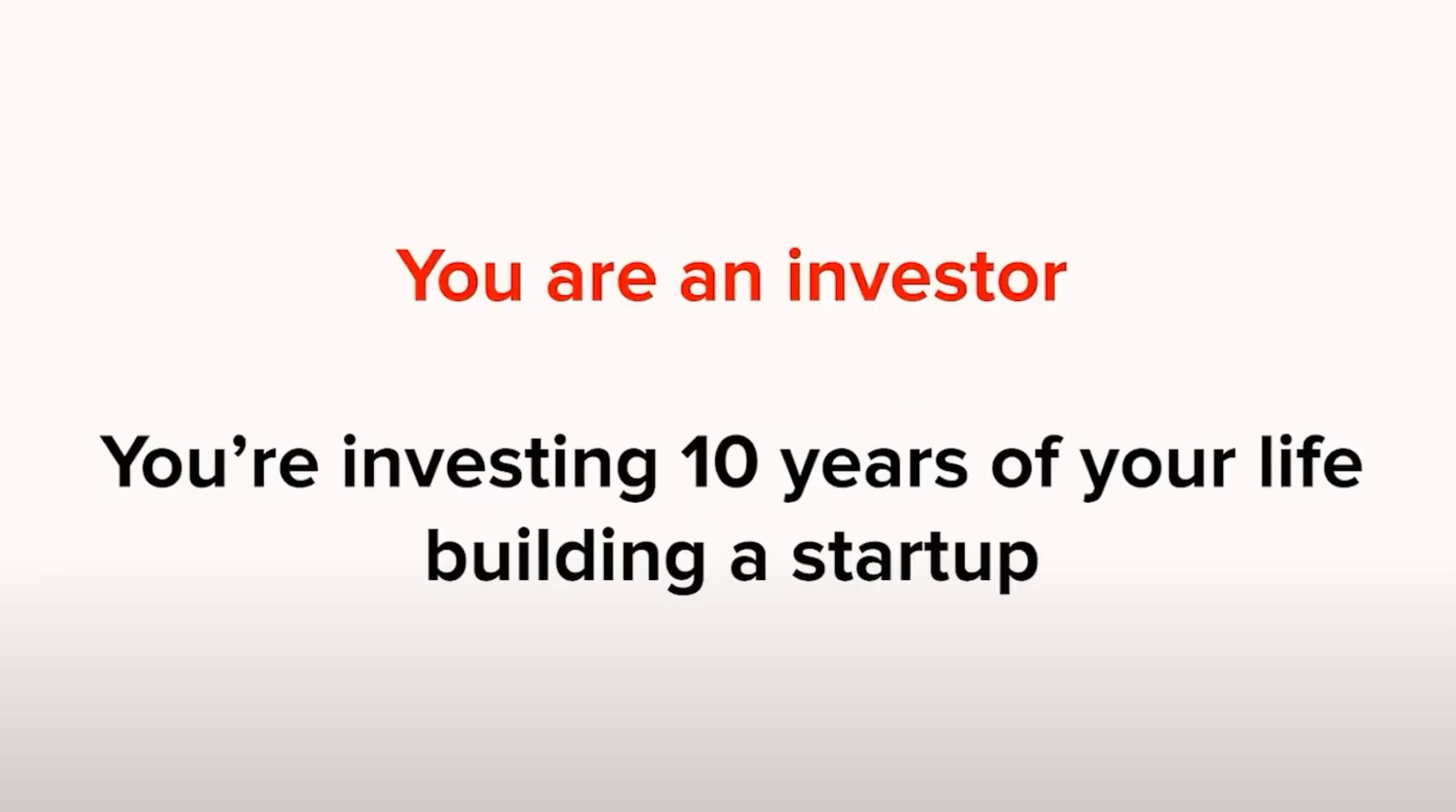
You want to think of yourself as an investor because you are an investor—you're investing something that's even more valuable than money, which is your time for the next 5 to 10 years or however long you're going to work on this.
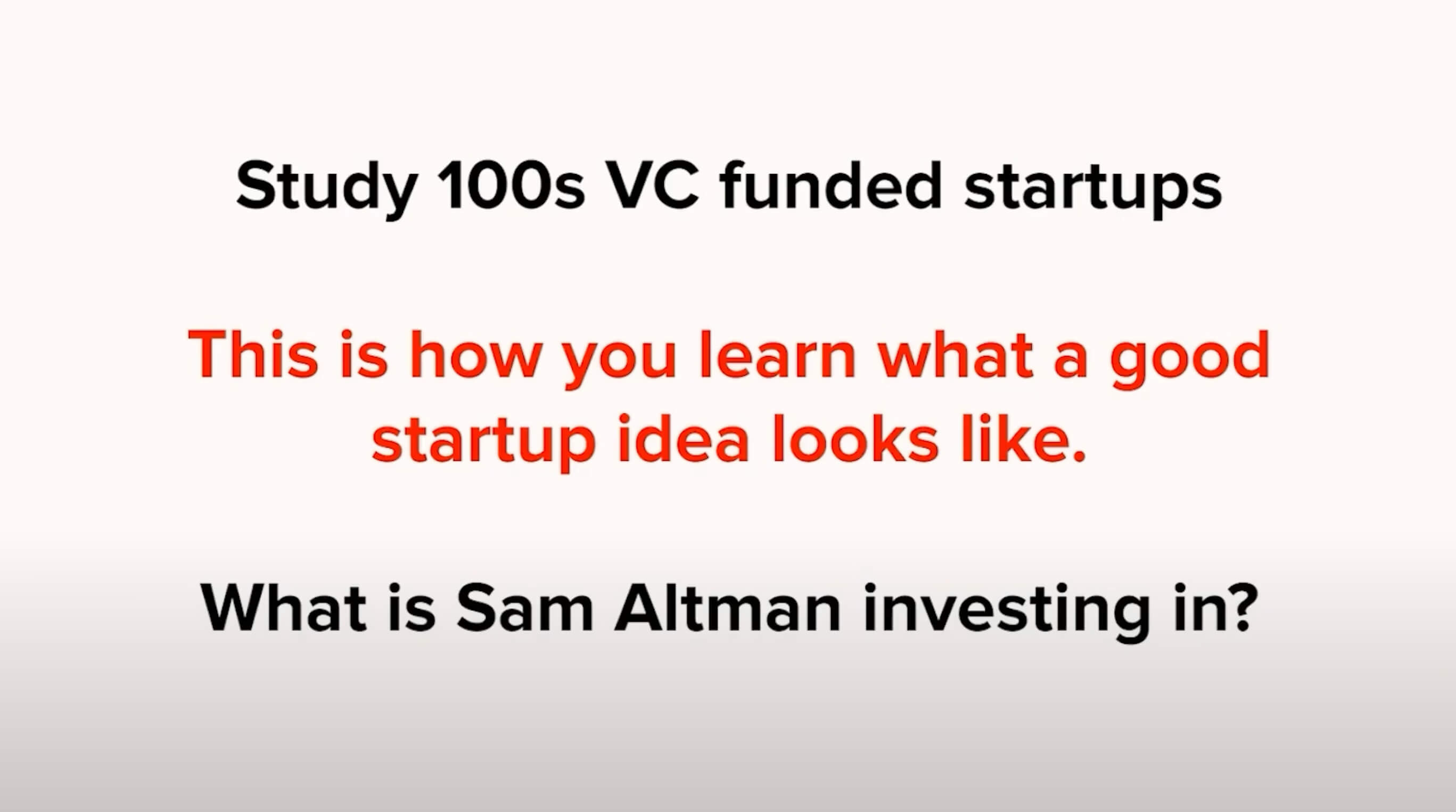
A smart way to approach this is to study at least 100 VC-funded startups, probably more—more like a thousand startups if you can. This is how you get a sense for what a good startup idea looks like. One good way to go about it is to find the world’s best investors, like Sam Altman, and take a look at what they're investing in.
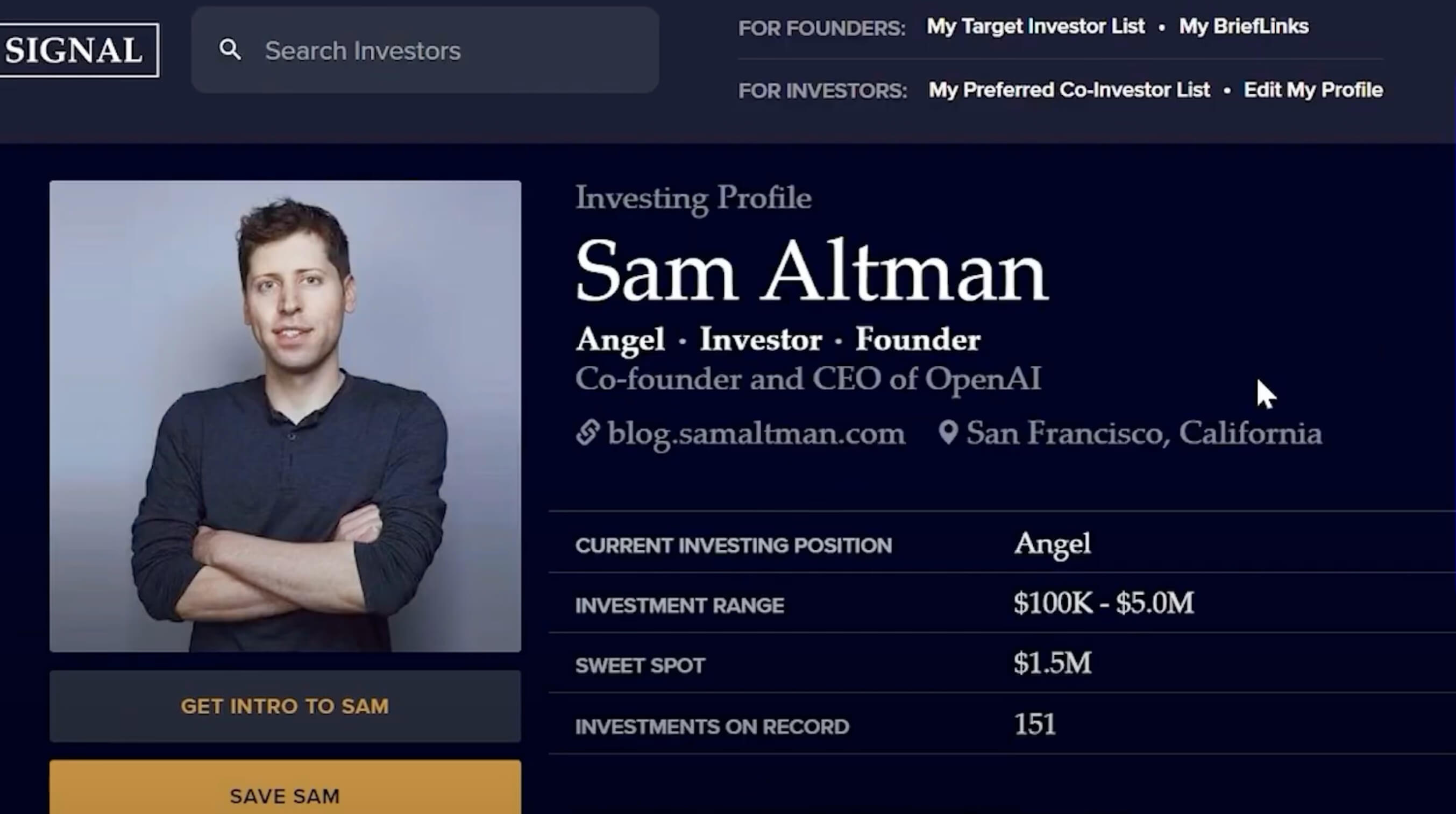
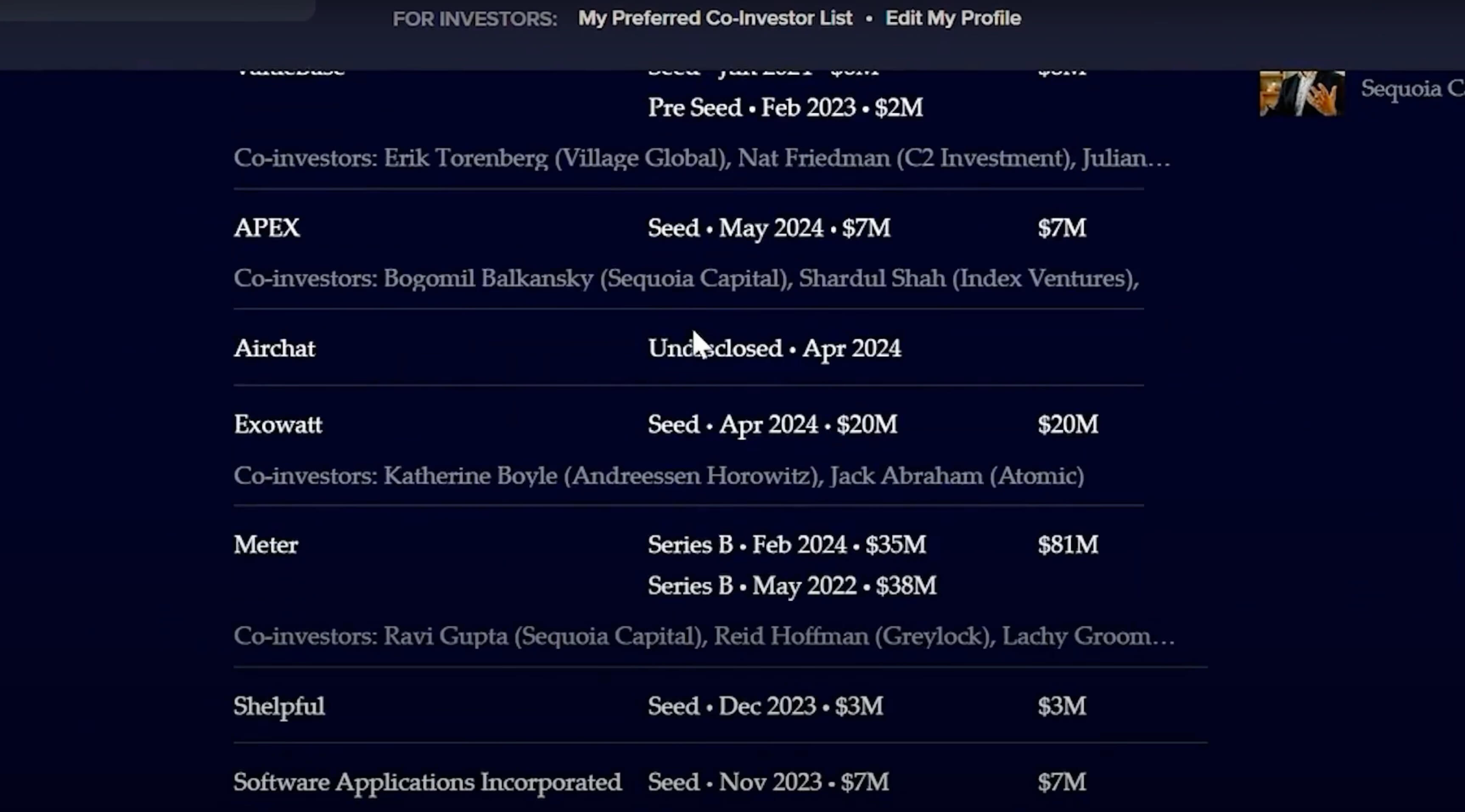
For example, if we go over to NFX, we can see that Sam Altman is investing in things like AI, obviously, but also nuclear fusion with Helion Energy and longevity with Retro Bio, as well as a better way to build computer chips—like custom silicon.

It’s pretty easy to study these companies. You basically just go to their website, check out their product, and click through the UX. A great way to do it is to find news articles on TechCrunch, for example, about companies like Helion Energy, where it would explain very clearly what is unique and better about this company.
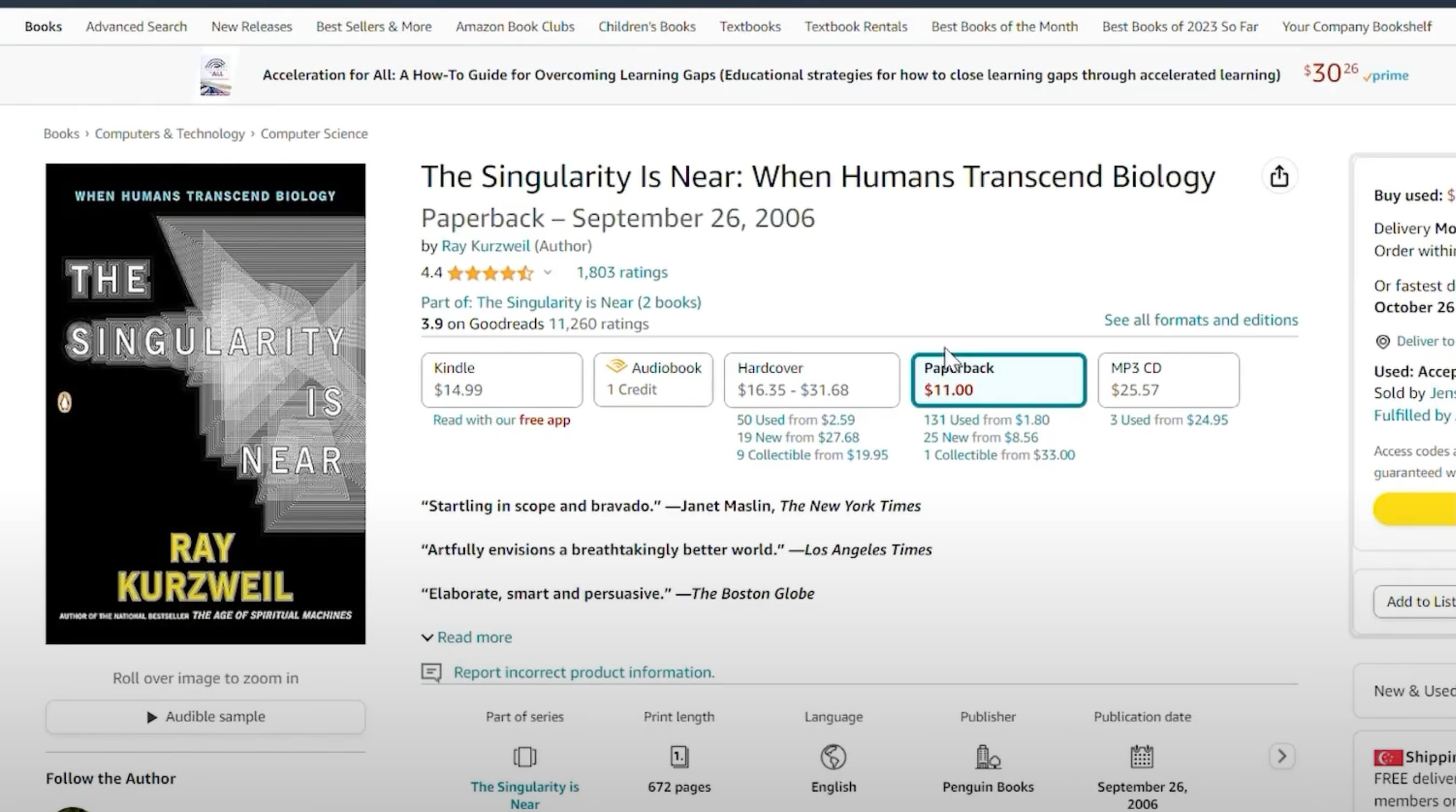
There are books, obviously—The Singularity Is Near by Ray Kurzweil.
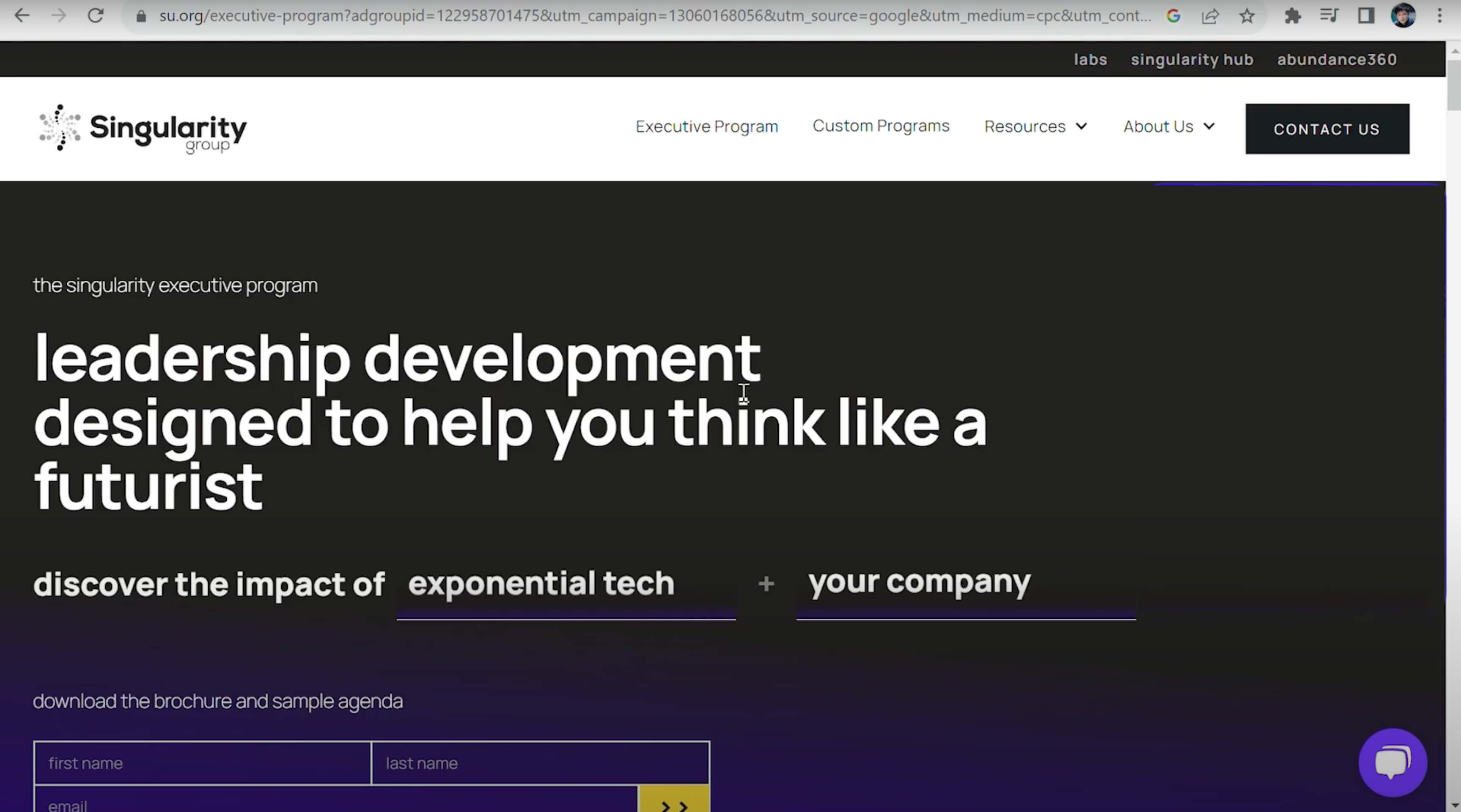
They have a university called Singularity University,
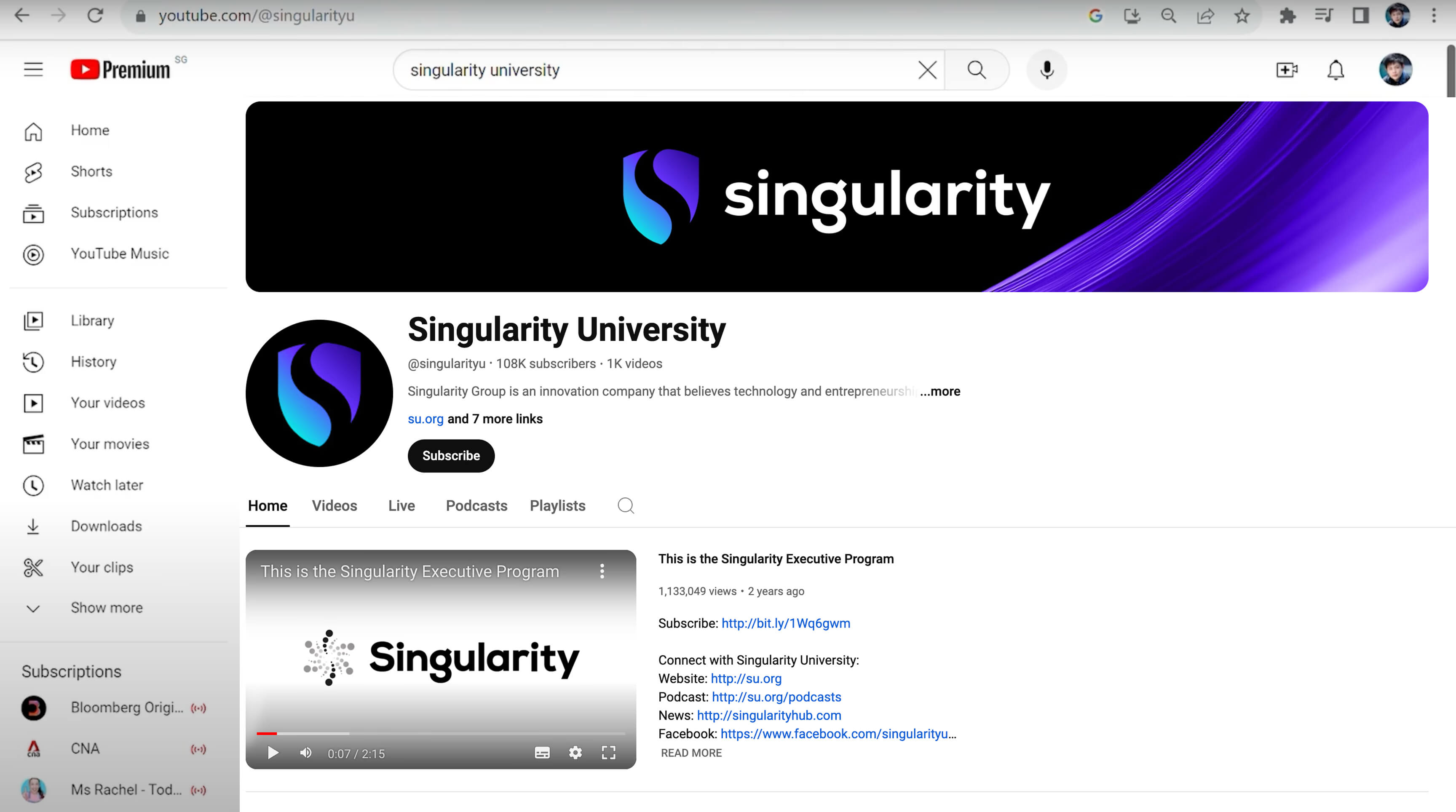
They have a YouTube channel as well, where they go into the latest trends in everything from longevity to education to AI to nanotech.
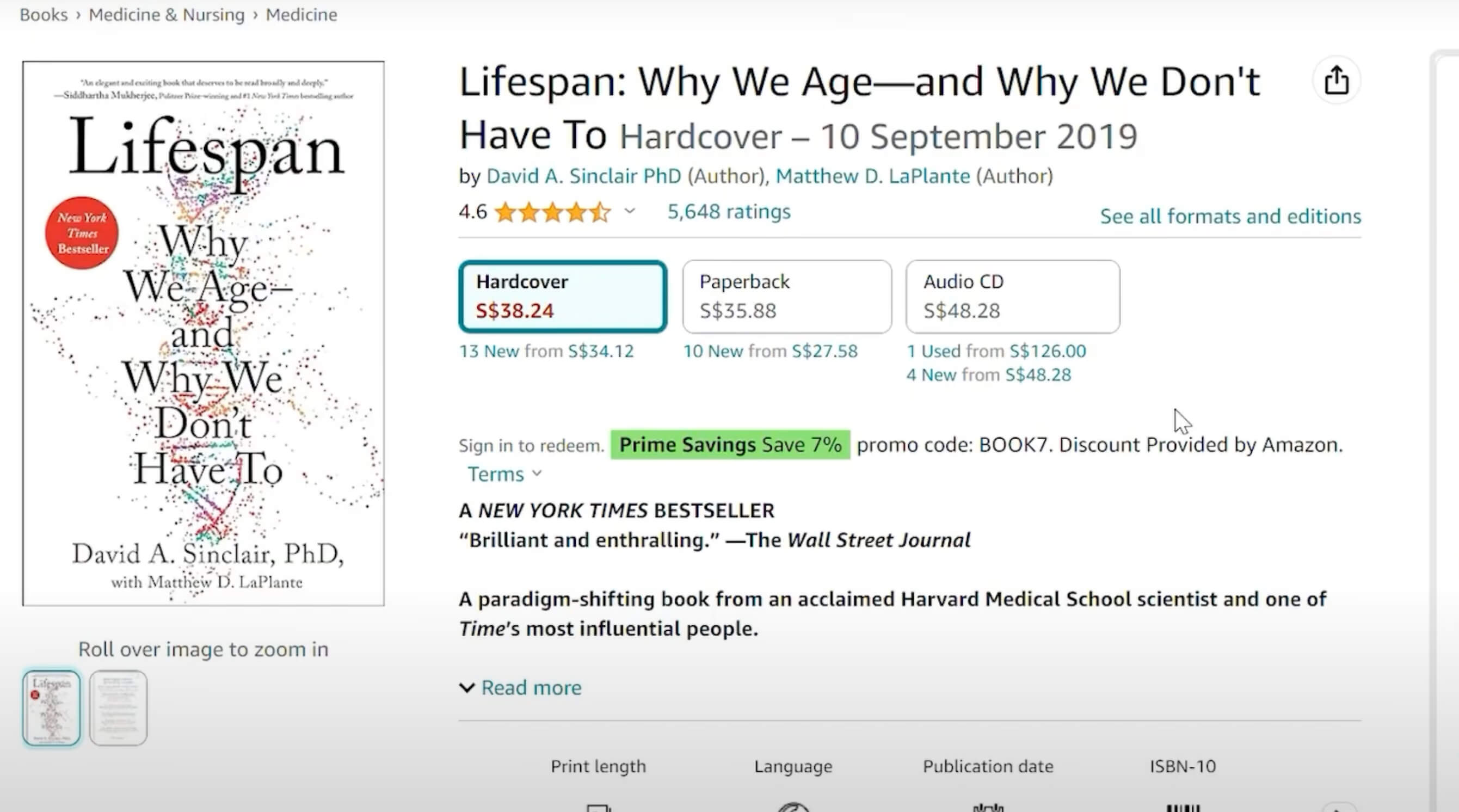
I like to look at longevity—how to live forever. David Sinclair is a famous Harvard researcher on this
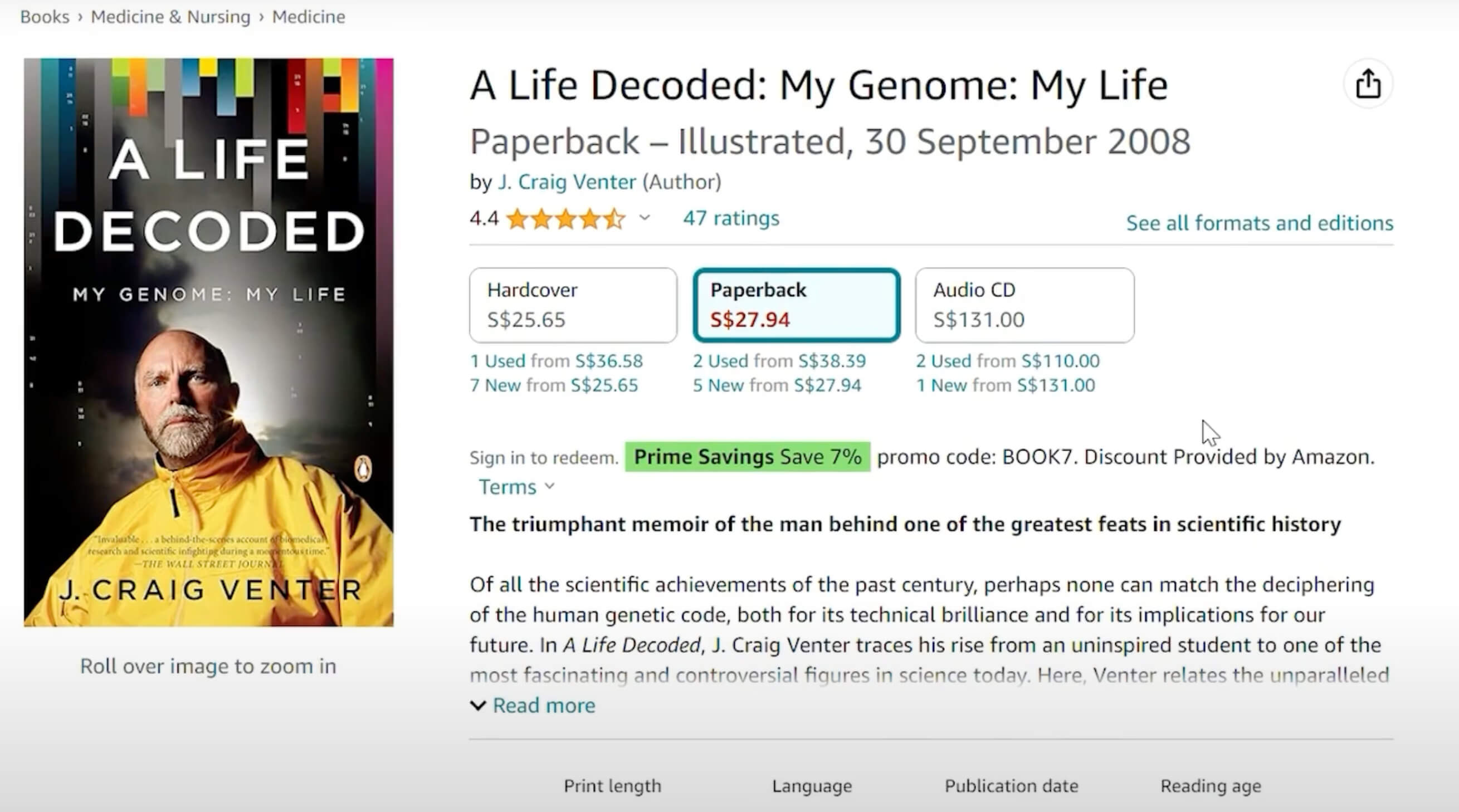
Craig Venter, who worked on the Human Genome Project.
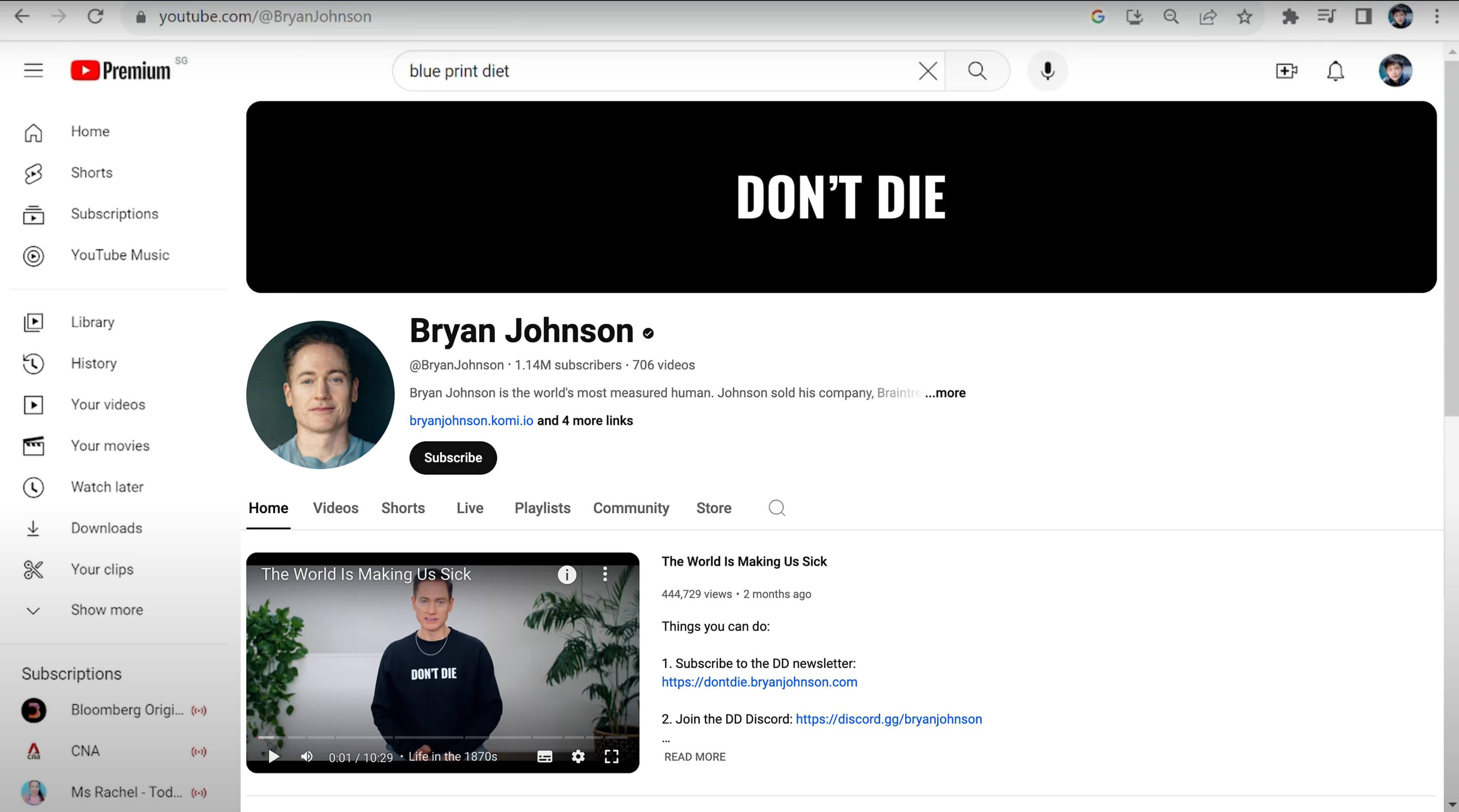
Bryan Johnson is another crazy guy trying to live forever on YouTube and documents his story.
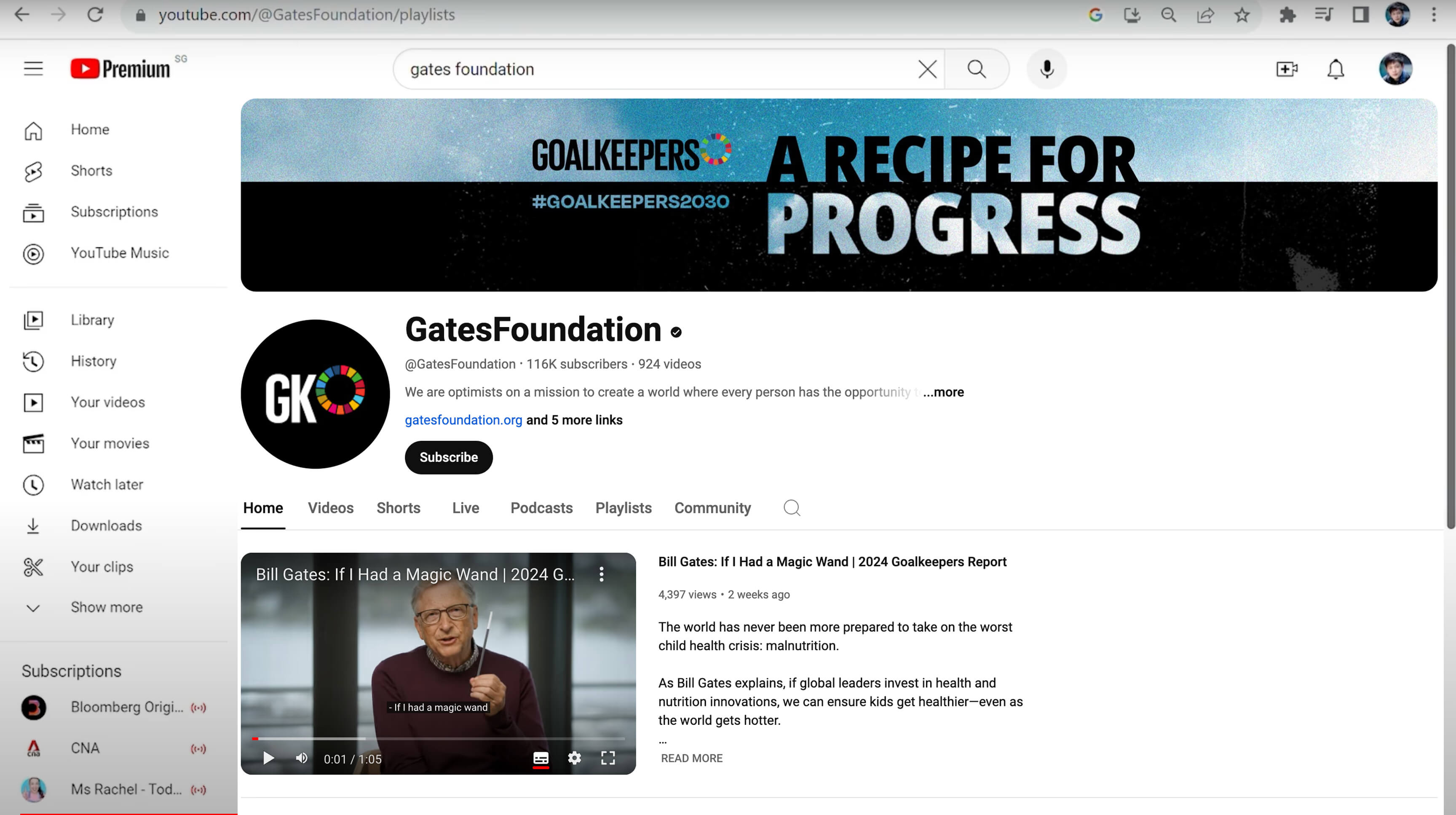
Gates Foundation for all the developments for global impact, like solving poverty, sanitation, vaccinations, as well as nuclear fusion.
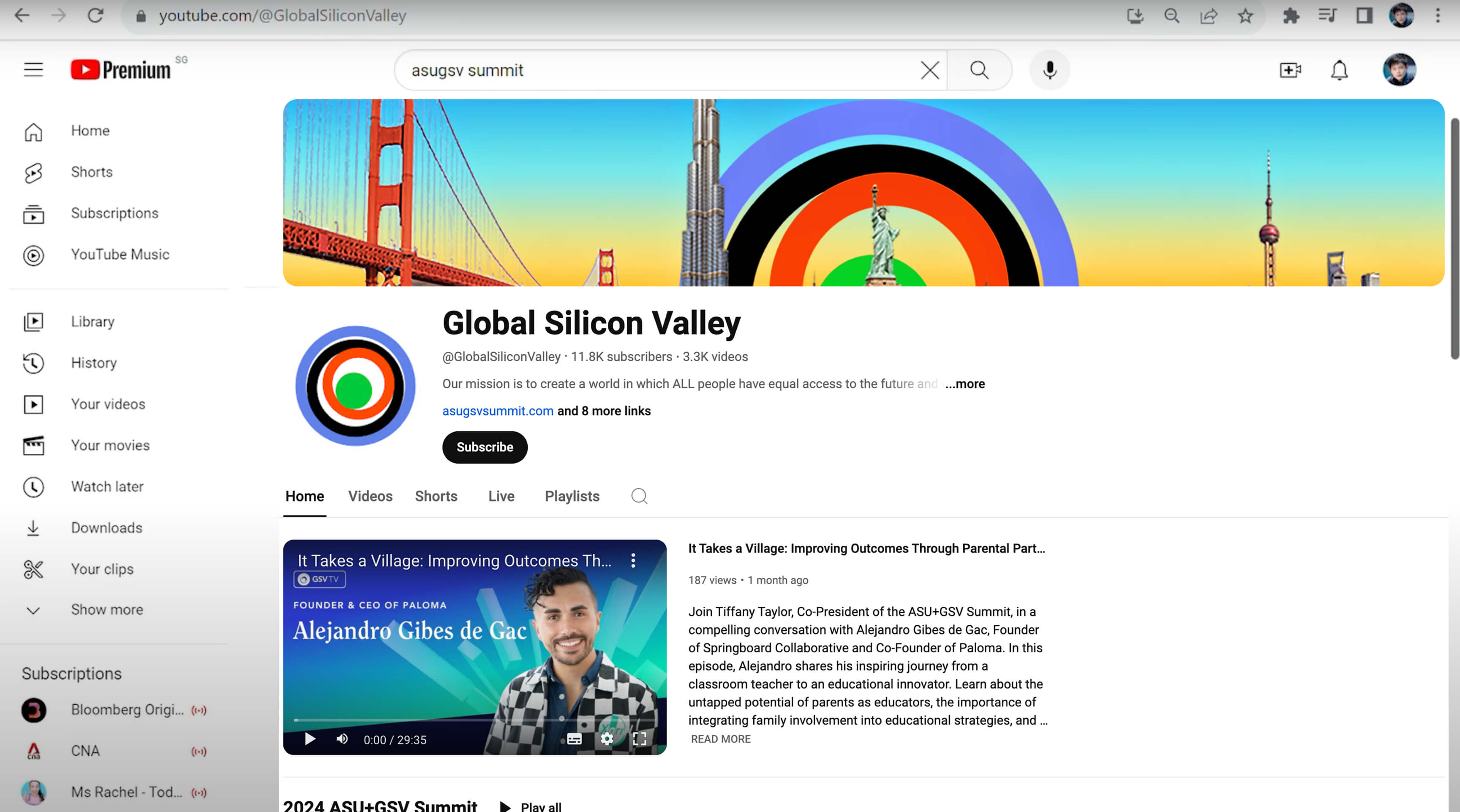
I love Global Silicon Valley, which is the biggest edtech conference in the world, and they have speakers like Sheryl Sandberg and Bill Gates and lots of famous teachers and educators.
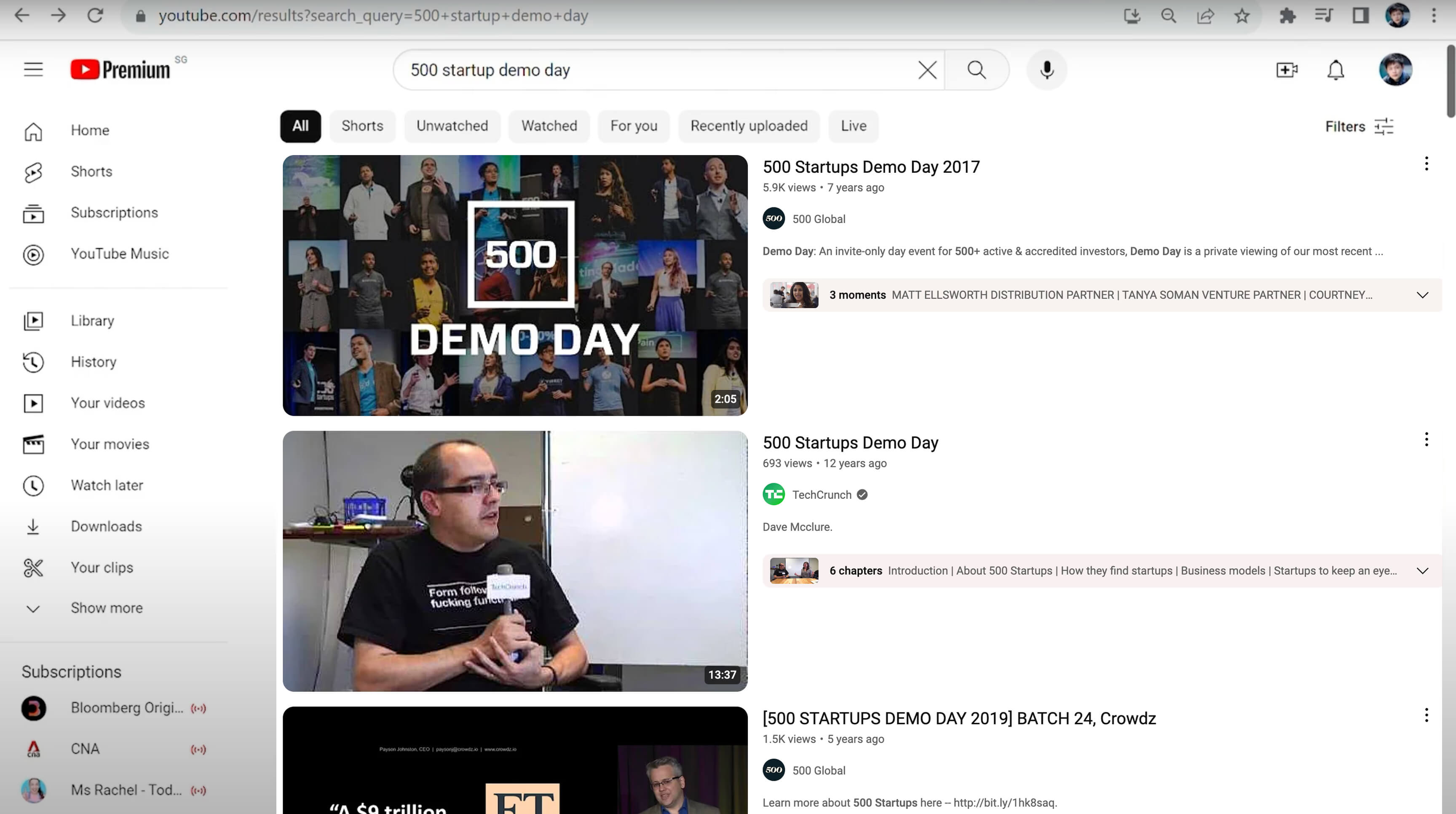
I also like to just listen to demo days from the famous startup accelerators, like 500 Startups or Techstars. This is 20-30 companies pitching in a video and ideas in concentrated form.
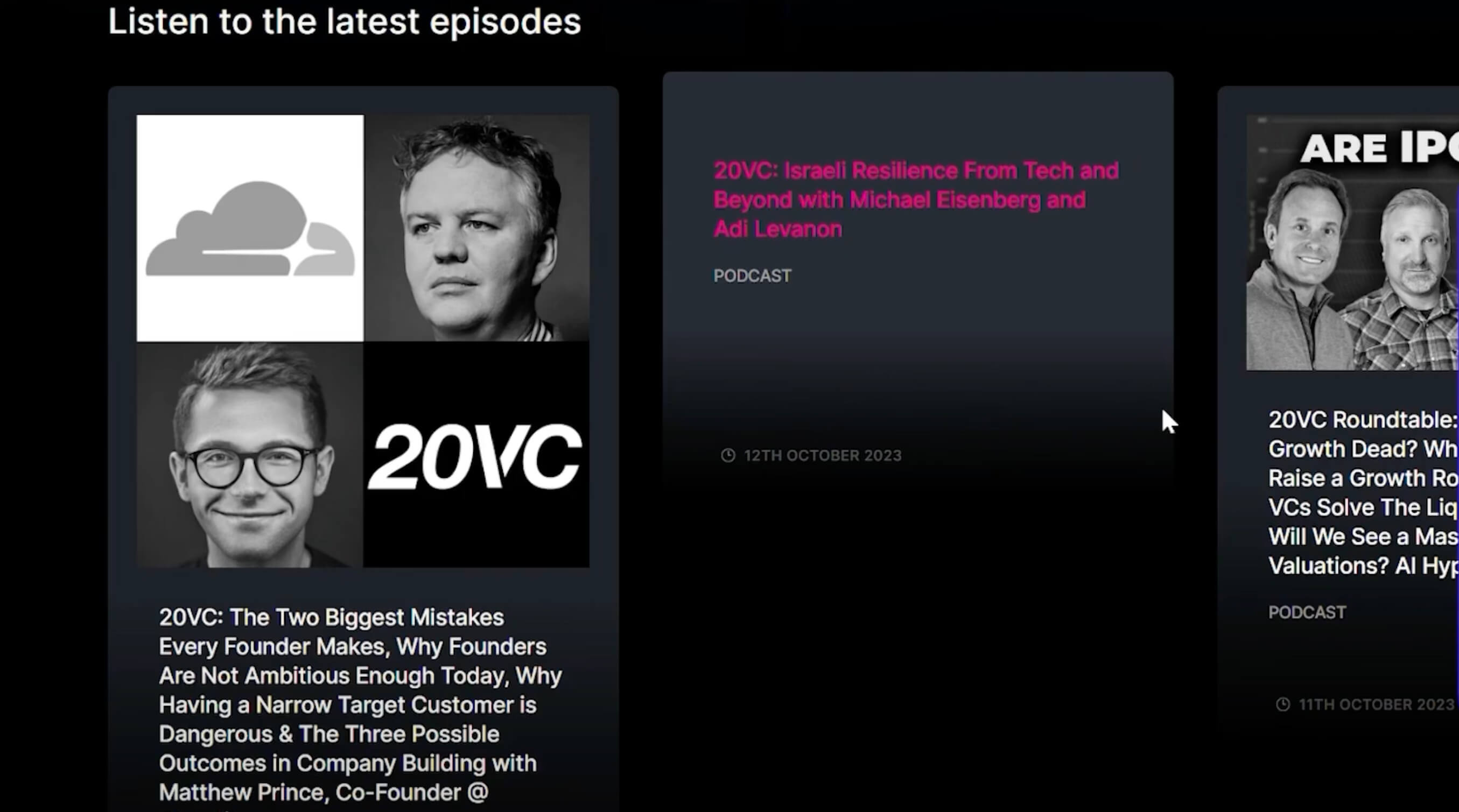
Podcasts are great. 20VC and inDepth have a lot of startup stories and ideas.
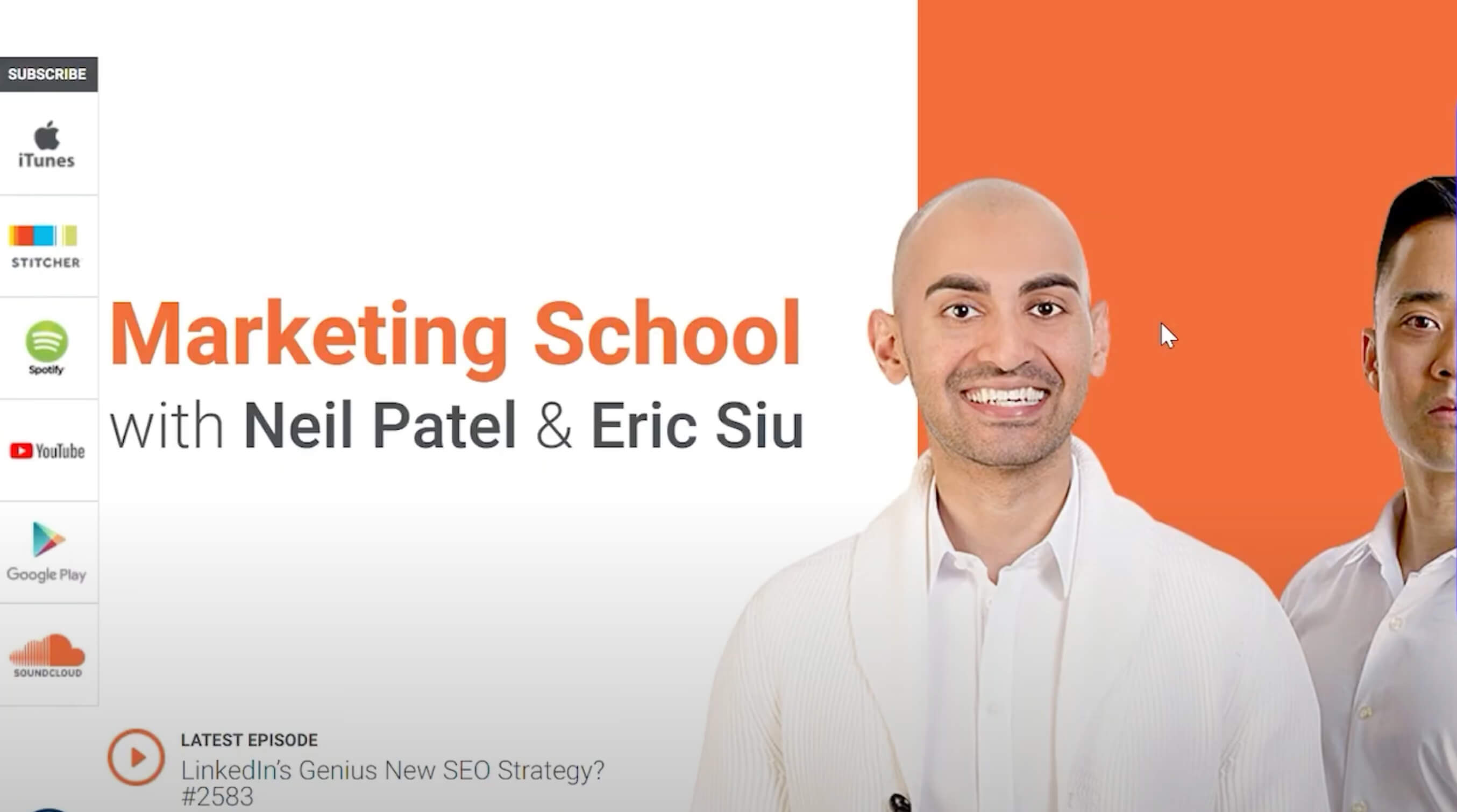
There's Marketing School from Neil Patel.
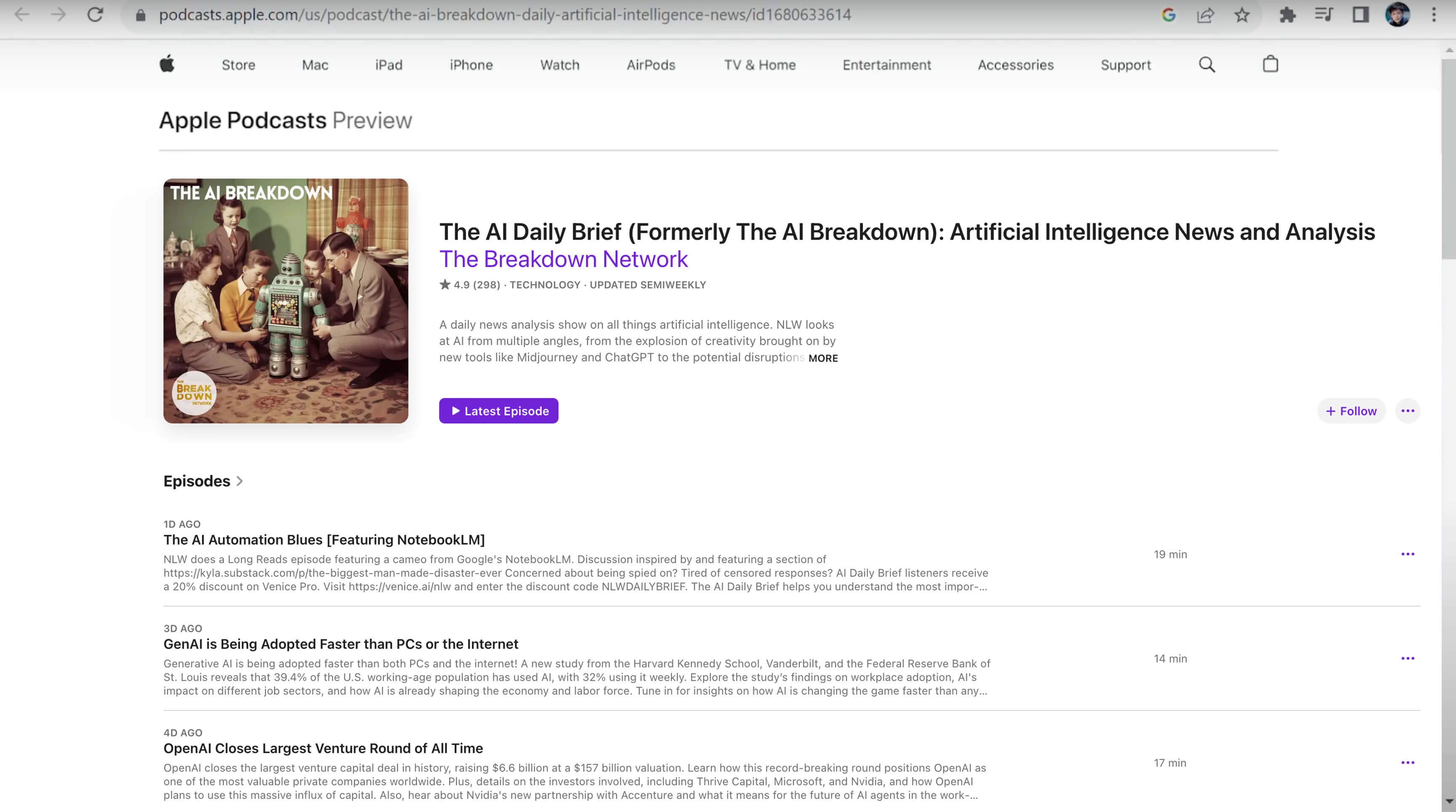
There's AI Breakdown.
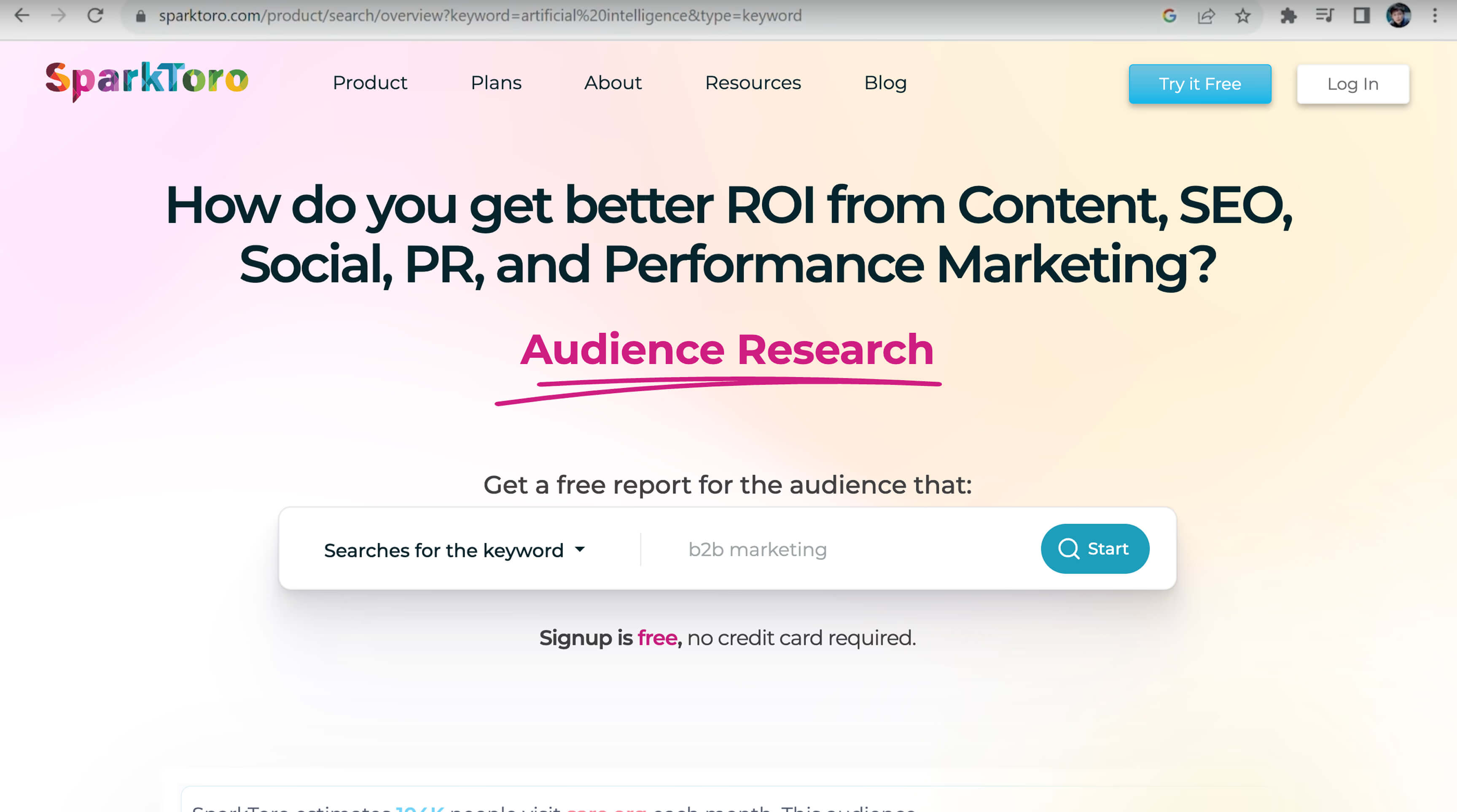
I would go to Spark Toro, where I can enter any topic and it will tell me the top influencers, Twitter accounts, subreddits and websites to follow.
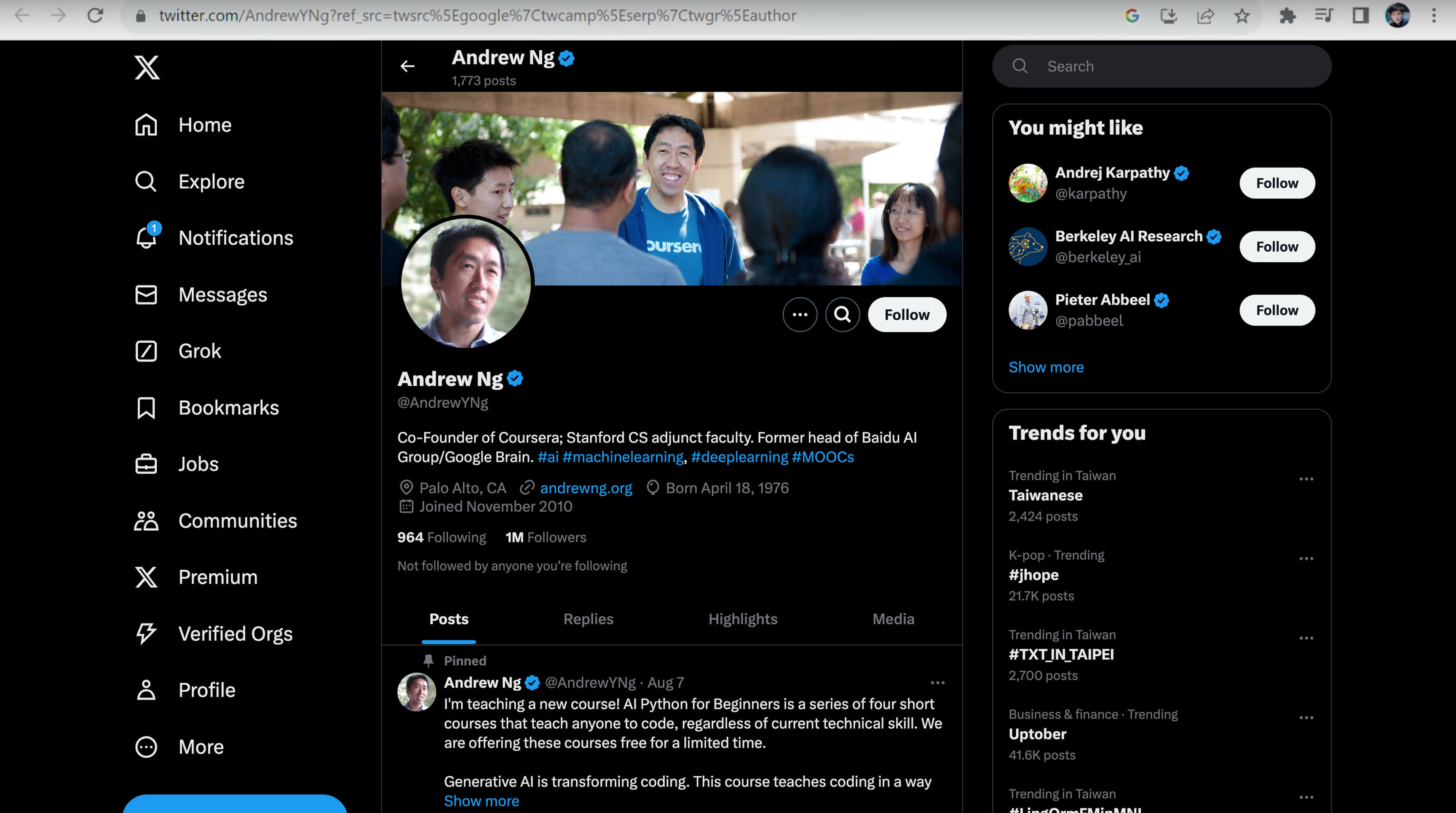
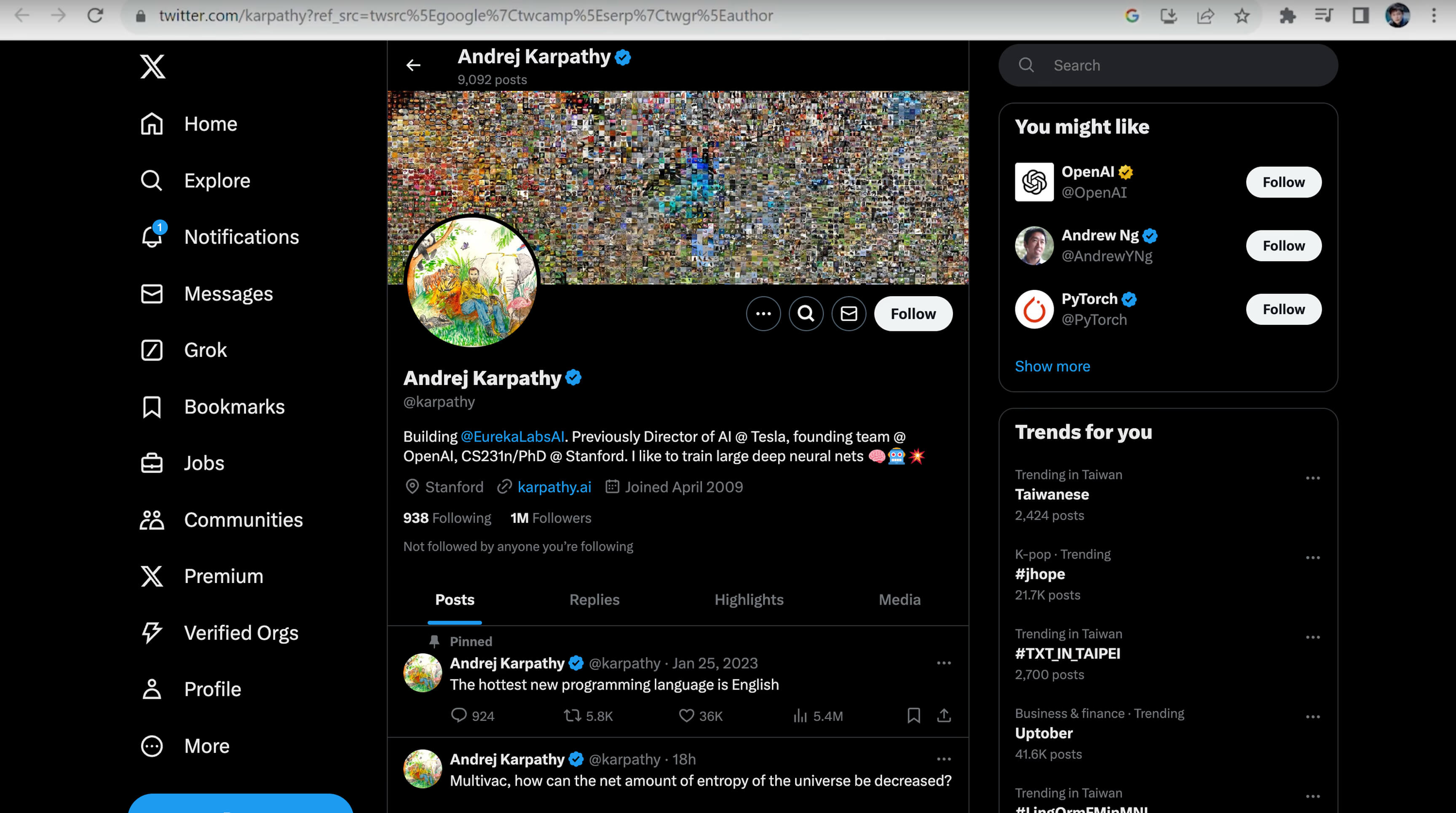
For AI there's Andrew NG, Andrej Karpathy.
Hey guys, I’m making video series on how I built ContactOut to 8 figures in revenue. Step by step videos on how to start a startup with screen shares of our teams exact process for competitor research, customer interviews, product design, marketing and sales. Actionable and tactical stuff – no fluff.
Here’s part 1:
How to come up with startup ideas
Pick an industry (with a big market size)
Study 100 companies
Study their product
Study marketing channels
Study sales process
Talk to ex-employees, ex-founders
Talk to 50 industry experts
Talk to 100 users
Become an expert and create a 10x better solution
Picking an industry:

Picking an industry with a big market size is important because, counterintuitively, it's actually easier to succeed working on a big problem than it is working on a small one. According to Sam Altman of OpenAI and Y Combinator, this is because it's easier to inspire people to join you, easier to raise money, and you also have more room for error.

If you're trying to solve artificial general intelligence, even if you get 1% of the way there, you'll still make $10 billion because it's a trillion-dollar problem. Whereas, if you tried to start a restaurant, even if you execute perfectly, your maximum upside is maybe $3 million. But you won't execute perfectly because startups are hard.

I like to read A16Z, where they talk about AI, biology, and health, the latest developments in consumer technology, enterprise software, games, and lots of other stuff. It’s basically their job to find the latest technological developments and invest in them, so you can piggyback off that.

Most founders might go through a couple of startup ideas and then get straight into building. The problem with this is, though, how do you even know if the startup idea you're working on is any good? What does a good startup idea even look like?

You want to think of yourself as an investor because you are an investor—you're investing something that's even more valuable than money, which is your time for the next 5 to 10 years or however long you're going to work on this.

A smart way to approach this is to study at least 100 VC-funded startups, probably more—more like a thousand startups if you can. This is how you get a sense for what a good startup idea looks like. One good way to go about it is to find the world’s best investors, like Sam Altman, and take a look at what they're investing in.


For example, if we go over to NFX, we can see that Sam Altman is investing in things like AI, obviously, but also nuclear fusion with Helion Energy and longevity with Retro Bio, as well as a better way to build computer chips—like custom silicon.

It’s pretty easy to study these companies. You basically just go to their website, check out their product, and click through the UX. A great way to do it is to find news articles on TechCrunch, for example, about companies like Helion Energy, where it would explain very clearly what is unique and better about this company.

There are books, obviously—The Singularity Is Near by Ray Kurzweil.

They have a university called Singularity University,

They have a YouTube channel as well, where they go into the latest trends in everything from longevity to education to AI to nanotech.

I like to look at longevity—how to live forever. David Sinclair is a famous Harvard researcher on this

Craig Venter, who worked on the Human Genome Project.

Bryan Johnson is another crazy guy trying to live forever on YouTube and documents his story.

Gates Foundation for all the developments for global impact, like solving poverty, sanitation, vaccinations, as well as nuclear fusion.

I love Global Silicon Valley, which is the biggest edtech conference in the world, and they have speakers like Sheryl Sandberg and Bill Gates and lots of famous teachers and educators.

I also like to just listen to demo days from the famous startup accelerators, like 500 Startups or Techstars. This is 20-30 companies pitching in a video and ideas in concentrated form.

Podcasts are great. 20VC and inDepth have a lot of startup stories and ideas.

There's Marketing School from Neil Patel.

There's AI Breakdown.

I would go to Spark Toro, where I can enter any topic and it will tell me the top influencers, Twitter accounts, subreddits and websites to follow.


For AI there's Andrew NG, Andrej Karpathy.
